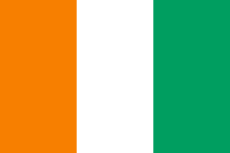Boulogne-Billancourt
| Boulogne-Billancourt | ||
|---|---|---|
|
The church of Our Lady of Boulogne-Billancourt | ||
| ||
 Paris and inner ring départements | ||
| Coordinates: 48°50′07″N 2°14′27″E / 48.83520°N 02.2409°ECoordinates: 48°50′07″N 2°14′27″E / 48.83520°N 02.2409°E | ||
| Country | France | |
| Region | Île-de-France | |
| Department | Hauts-de-Seine | |
| Arrondissement | Boulogne-Billancourt | |
| Intercommunality | Val de Seine | |
| Government | ||
| • Mayor (2008–2020) | Pierre-Christophe Baguet | |
| Area1 | 6.17 km2 (2.38 sq mi) | |
| Population (2012)2 | 117,126 | |
| • Density | 19,000/km2 (49,000/sq mi) | |
| Time zone | CET (UTC+1) | |
| • Summer (DST) | CEST (UTC+2) | |
| INSEE/Postal code | 92012 / 92100 | |
| Elevation | 28–40 m (92–131 ft) | |
|
1 French Land Register data, which excludes lakes, ponds, glaciers > 1 km² (0.386 sq mi or 247 acres) and river estuaries. 2 Population without double counting: residents of multiple communes (e.g., students and military personnel) only counted once. | ||
Boulogne-Billancourt (French pronunciation: [bu.lɔɲ.bi.jɑ̃.kuʁ]; often colloquially called simply Boulogne) is a commune in the western suburbs of Paris, France. It is located 8.2 km (5.1 mi) from the centre of Paris. Boulogne-Billancourt is a subprefecture of the Hauts-de-Seine department and the seat of the Arrondissement of Boulogne-Billancourt.
With an average household income in 2013 of €47,592, nearly twice the French average of €25,548, Boulogne-Billancourt is one of the wealthiest cities in France.[1]
Boulogne-Billancourt is the most populous suburb of Paris and one of the most densely populated municipalities in Europe. Formerly an important industrial site, it has successfully reconverted into business services and is now home to major communication companies headquartered in the Val de Seine business district.
Name
The original name of the commune was Boulogne-sur-Seine (meaning "Boulogne upon Seine").
Before the 14th century, Boulogne was a small village called Menuls-lès-Saint-Cloud (meaning "Menuls near Saint-Cloud"). In the beginning of the 14th century, King Philip IV of France ordered the building in Menuls-lès-Saint-Cloud of a church dedicated to the virgin of the sanctuary of Boulogne-sur-Mer, then a famous pilgrimage center in northern France. The church, meant to become a pilgrimage centre closer to Paris than the distant city of Boulogne-sur-Mer, was named Notre-Dame de Boulogne la Petite ("Our Lady of Boulogne the Minor"). Gradually, the village of Menuls-lès-Saint-Cloud became known as Boulogne-la-Petite, and later as Boulogne-sur-Seine.
In 1924, Boulogne-sur-Seine was officially renamed Boulogne-Billancourt to reflect the development of the industrial neighbourhood of Billancourt annexed in 1860 (see history section below).
As for the name Billancourt, it was recorded for the first time in 1150 as Bullencort, sometimes also spelled Bollencort. It comes from Medieval Latin cortem, accusative of cors, meaning "enclosure", "estate", suffixed to the Germanic patronym Buolo (meaning "friend, brother, kinsman"), thus having the meaning of "estate of Buolo".
History
On 1 January 1860, the city of Paris was enlarged by annexing neighbouring communes. On that occasion, the communes of Auteuil and Passy were disbanded and divided between Boulogne-Billancourt (then called Boulogne-sur-Seine) and the city of Paris. Boulogne-sur-Seine received a small part of the territory of Passy, and about half of the territory of Auteuil (including the area of Billancourt, which belonged to the disbanded commune of Auteuil).
Some of the shooting events of the 1900 Summer Olympics took place in Boulogne-Billancourt.[2]
In 1929, the Bois de Boulogne, which was hitherto divided between the communes of Boulogne-Billancourt and Neuilly-sur-Seine, was annexed in its entirety by the city of Paris. On that occasion, Boulogne-Billancourt, to which most of the Bois de Boulogne belonged, lost about half of its territory.
Boulogne-Billancourt is famous for being the birthplace of three major French industries: cinema, automobile with Renault, and aircraft. It is also famous for being the setting of the TV show Code Lyoko.
Administration
With the city of Sèvres, Boulogne-Billancourt is part of the communauté d'agglomération Val de Seine.
Transport
Boulogne-Billancourt is served by two stations on Paris Métro Line 10: Boulogne – Jean Jaurès and Boulogne – Pont de Saint-Cloud.
It is also served by three stations on Paris Métro Line 9: Marcel Sembat, Billancourt, and Pont de Sèvres.
Economy
Boulogne-Billancourt hosts the global headquarters of several multinational companies, including:
Prior to 2000 Schneider Electric's head office was in Boulogne-Billancourt.[7]
Main sights
- The Musée Albert-Kahn at 14, rue du Port, Boulogne-Billancourt is a national museum and includes four hectares of gardens, joining together landscape scenes of various national traditions. The museum also includes historic photographs and film.
- The Musée des Années Trente is a museum of artistic and industrial objects from the 1930s.
Education
- See also: Enseignement à Boulogne-Billancourt (French)
The public collèges (middle schools) in the commune include Jacqueline-Auriol, Bartholdi, Paul-Landowski, and Jean-Renoir. The public high schools are the Lycée Jacques-Prévert and the Lycée polyvalent Étienne-Jules-Marey.[8] Prior to the September 1968 opening of Prévert, the first high school/sixth-form in Boulogne, an annex of Lycée La Fontaine served the city.[9]
The private school Groupe Scolaire Maïmonide Rambam covers maternelle through lycée. There is also the private high school Notre-Dame. The latter's performance and ranking in Boulogne-Billancourt are given by its success of baccalaureate rate in different series. According to the ranking of L'Express in 2015, the national rank of Notre-Dame de Boulogne was 170 out of 2301 and 7 out of 52 at department level. The private schools Dupanloup and Saint-Joseph-du-Parchamp serve maternelle through collège. Private maternelle and élémentaire schools include Saint-Alexandre and Saint-François d’Assise. Jardin de Solférino and La Maison de l'Enfant are private maternelles.[10]
The Association Eveil Japon (エベイユ学園 Ebeiyu Gakuen), a supplementary Japanese education program, is located in Boulogne-Billancourt.[11]
Famous people
Boulogne-Billancourt was the birthplace of:
- Pierre Bellemare, actor, writer
- Pape Badiane, basketball player
- Bertrand Blier (born 14 March 1939), screenwriter and film director; son of Bernard Blier
- Hubert Le Blon, (21 March 1874 -2 April 1910), automobilist and pioneer aviator.
- Booba, (born 1976) rapper
- Daniel Buren (born 1938), conceptual artist
- Guillaume Canet (born 10 April 1973), actor, screenwriter and director
- Leslie Caron (born 1931), film actress and dancer
- Benjamin Castaldi (born 28 March 1970), TV presenter and producer; son of actor Jean-Pierre Castaldi, former husband of fellow TV presenter Flavie Flament
- Matthieu Chedid (born 21 December 1971), composer, singer, guitarist; son of fellow singer and composer Louis Chedid and grandson of writer and poet Andrée Chedid.
- Michel Combes (born 1962), French businessman; the current CEO of Alcatel-Lucent
- Guillaume Connesson (born May 5, 1970), composer
- Édith Cresson (born 1934), politician, former Prime Minister of France under François Mitterrand's presidency
- Xavier de Roux (born 1940), politician
- Michel Deville (born 13 April 1931), screenwriter and film director
- Alain Feydeau (born 21 July 1934), actor
- Laurent Garnier (born 1 February 1966), electronic music producer/DJ
- Anna Gavalda (born 1970), best-selling novelist
- Hippolyte Girardot (born 10 October 1955), actor
- André Glucksmann (1937-2015), political philosopher, writer
- Anne Goscinny (born 19 May 1968), daughter of comics-maker René Goscinny (Astérix), and writer Gilberte Goscinny
- David Hallyday, (born David Smet on 14 August 1966), composer, pop rock singer; son of singers Johnny Hallyday (born Jean-Philippe Smet) and Sylvie Vartan, cousin of actress Laura Smet and actor Michael Vartan
- Raphaël Hamburger, (born on 2 April 1981), music supervisor, son of singers Michel Berger (born Michel Hamburger) and France Gall
- Raphaël Haroche, (born 7 November 1975), singer, songwriter and actor
- Jacques Huntzinger, (born 1 August 1943), ambassador
- Henri Kagan (born 1930), chemist
- Keny Arkana (born 20 December 1982), Argentinian-French rapper, and co-founder of the social movement La Rage du peuple
- Sandrine Kiberlain (born 25 February 1968), actress; wife of fellow French actor Vincent Lindon
- Louise L. Lambrichs (born 1952), novelist and screenwriter
- Gérard Lanvin (born 21 June 1950), actor
- Corinne Lepage (born 11 May 1951), politician
- Marc Levy (born 16 October 1961), international best-sellers writer
- Thierry Lhermitte (born 24 November 1952), actor, co-writer (usually with the band of the Splendid), director, producer.
- Nicolas Mahut (born January 21, 1982), tennis player
- François Mativet (born May 21, 1949), guitarist
- Patrick Modiano (born 30 July 1945), writer, winner of the 2014 Nobel Prize in Literature
- Nelson Monfort (born 12 March 1954), TV presenter, translator, sports commentator for French public television.
- Roger Monteaux (born 18 July 1879), actor
- Bulle Ogier (born Marie-France Thielland on 9 August 1939), actress
- Claude Pinoteau, actor, director, writer, producer
- Jérôme Pradon (born 3 June 1964), stage actor
- Thierry Roland (1934-2012), football specialist, sports journalist, TV commentator and presenter.
- Baron Edmond James de Rothschild (1845–1934), philanthropist and activist for Jewish affairs
- Véronique Sanson, singer
- Alain Sarde (born 28 March 1952), former actor, now writer and producer.
- Catherine Spaak (born 3 April 1945), actress
- Agnès Spaak (born 29 April 1944), actress
- Georgette Tissier (26 June 1910 – 30 March 1957 in Paris), actress
- Marie Trintignant (1962–2003), actress
- Gaspard Ulliel, (born 25 November 1984), actor, model
- Michael Vartan (born 1968), French-American actor
- Zazie (Isabelle de Truchis de Varennes, born 1964), singer-songwriter
- Adrien W. Jenot (born November 1, 1980), France-Canada Graphic designer/Typographer
- HI&RH Prince Lorenz of Belgium Archduke of Austria-Este, Prince Royal of Hungary (born 1955), banker and husband to HI&RH Princess Astrid of Belgium Archduchess of Austria-Este daughter of HRH King Albert II of Belgium and sister of HM King Philippe of the Belgians
International relations
Twin towns — Sister cities
Boulogne-Billancourt is twinned with:
- Since 1955:
.svg.png) Anderlecht, Brussels, Belgium
Anderlecht, Brussels, Belgium Neukölln, Berlin, Germany
Neukölln, Berlin, Germany Hammersmith and Fulham, Greater London, England[12]
Hammersmith and Fulham, Greater London, England[12] Zaanstad, North Holland, Netherlands
Zaanstad, North Holland, Netherlands
- Since 1968:
- Since 1993:
- Since 2012:
 Abidjan, Côte d'Ivoire
Abidjan, Côte d'Ivoire
See also
- Communes of the Hauts-de-Seine department
- Athletic Club de Boulogne-Billancourt
- Boulogne-Billancourt Half Marathon
- Raymond Couvègnes
References
- ↑ "Salaire à Boulogne-Billancourt (92100, Hauts-de-Seine)" (in French). JDN. Retrieved 2016-06-20.
- ↑ "1900 Summer Olympics official report" (PDF) (in French). La84foundation.org. p. 16. Retrieved November 14, 2010.
- ↑ "Contact Us". Alcatel-Lucent. Retrieved March 18, 2015.
- ↑ "Legal Infos". Carrefour. Retrieved May 3, 2012. "This site is published by Carrefour, a limited company (société anonyme) capitalised at €1,698,340,000, headquartered at 33, avenue Émile Zola, 92100 Boulogne Billancourt, [...]"
- ↑ "FAQ". Pika Édition. Retrieved May 1, 2011.
- ↑ "Boulogne-Billancourt - RSAS". Renault. Retrieved September 22, 2009.
- ↑ "Schneider-Electric s'est installé chez une filiale" (in French). journaldunet.com. Retrieved July 8, 2010.
- ↑ "L'ENSEIGNEMENT DU SECOND DEGRÉ" (Archive). Commune of Boulogne-Billancourt. Retrieved on 16 May 2014.
- ↑ "Naissance du lycée." Lycée Jacques-Prévert. Retrieved on September 9, 2016.
- ↑ "L'ENSEIGNEMENT PRIVÉ" (Archive). Commune of Boulogne-Billancourt. Retrieved on 16 May 2014.
- ↑ "欧州の補習授業校一覧(平成25年4月15日現在)" (Archive). Ministry of Education, Culture, Sports, Science and Technology (MEXT). Retrieved on May 10, 2014. "エベイユ Association Eveil Japon 27 rue de Serves 92100Boulogne-Billancourt ,France"
- ↑ "British towns twinned with French towns [via WaybackMachine.com]". Archant Community Media Ltd. Archived from the original on 5 July 2013. Retrieved 2013-07-20.
- ↑ "Ra'anana: Twin towns & Sister cities - Friends around the World". raanana.muni.il. Retrieved 24 March 2010.
External links
| Wikimedia Commons has media related to Boulogne-Billancourt. |
| Wikisource has the text of the 1911 Encyclopædia Britannica article Boulogne-sur-Seine. |
- Site officiel de Boulogne-Billancourt (French)
- Page Facebook de Boulogne-Billancourt (French)
- Compte Twitter de Boulogne-Billancourt (French)
- History of Billancourt (French)

